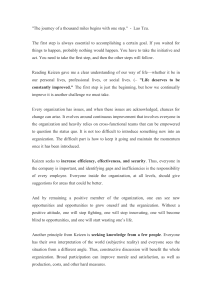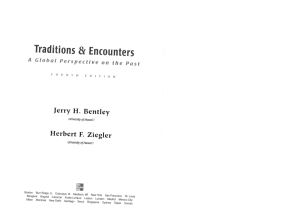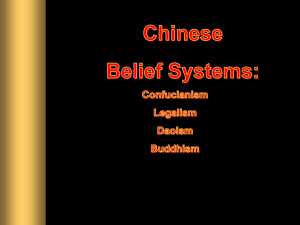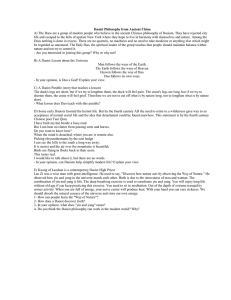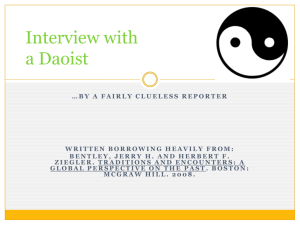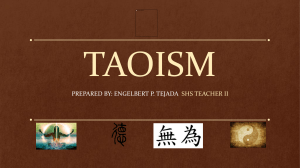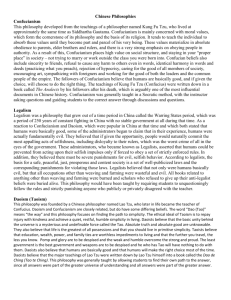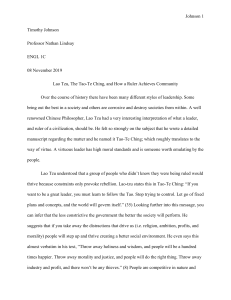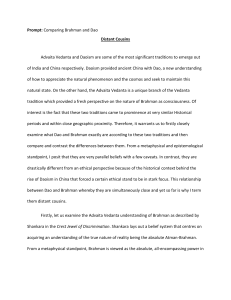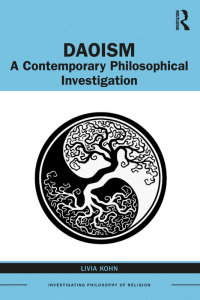Activity 4. Daoist Philosophy from Classical China Source: Background:
advertisement
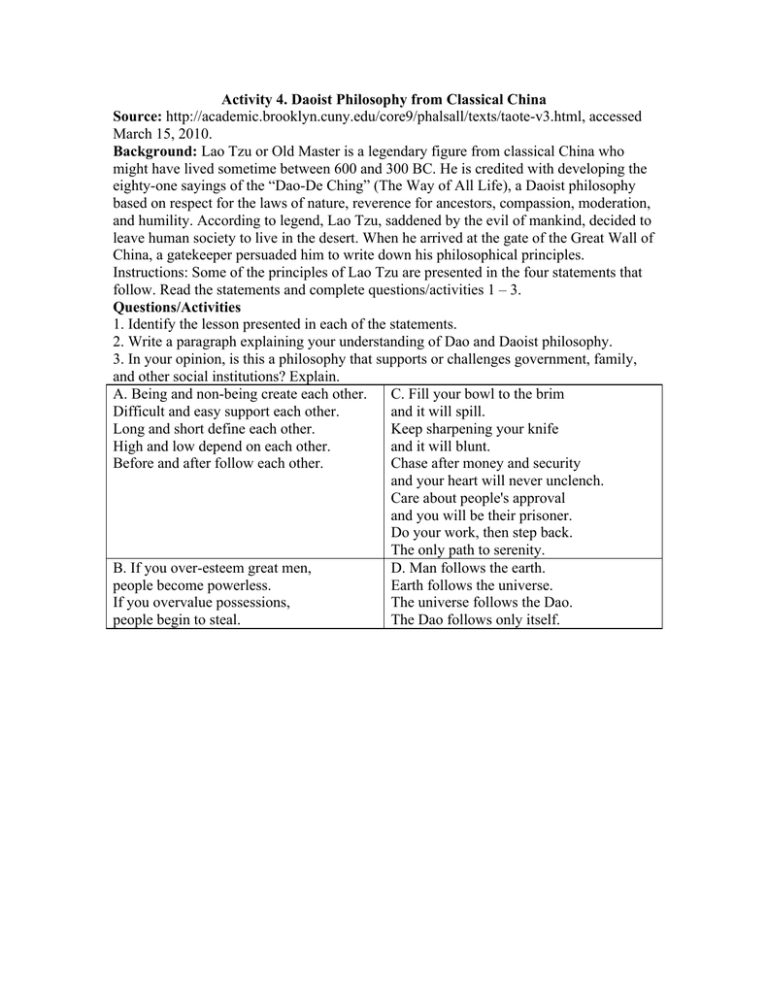
Activity 4. Daoist Philosophy from Classical China Source: http://academic.brooklyn.cuny.edu/core9/phalsall/texts/taote-v3.html, accessed March 15, 2010. Background: Lao Tzu or Old Master is a legendary figure from classical China who might have lived sometime between 600 and 300 BC. He is credited with developing the eighty-one sayings of the “Dao-De Ching” (The Way of All Life), a Daoist philosophy based on respect for the laws of nature, reverence for ancestors, compassion, moderation, and humility. According to legend, Lao Tzu, saddened by the evil of mankind, decided to leave human society to live in the desert. When he arrived at the gate of the Great Wall of China, a gatekeeper persuaded him to write down his philosophical principles. Instructions: Some of the principles of Lao Tzu are presented in the four statements that follow. Read the statements and complete questions/activities 1 – 3. Questions/Activities 1. Identify the lesson presented in each of the statements. 2. Write a paragraph explaining your understanding of Dao and Daoist philosophy. 3. In your opinion, is this a philosophy that supports or challenges government, family, and other social institutions? Explain. A. Being and non-being create each other. C. Fill your bowl to the brim Difficult and easy support each other. and it will spill. Long and short define each other. Keep sharpening your knife High and low depend on each other. and it will blunt. Before and after follow each other. Chase after money and security and your heart will never unclench. Care about people's approval and you will be their prisoner. Do your work, then step back. The only path to serenity. B. If you over-esteem great men, D. Man follows the earth. people become powerless. Earth follows the universe. If you overvalue possessions, The universe follows the Dao. people begin to steal. The Dao follows only itself.
